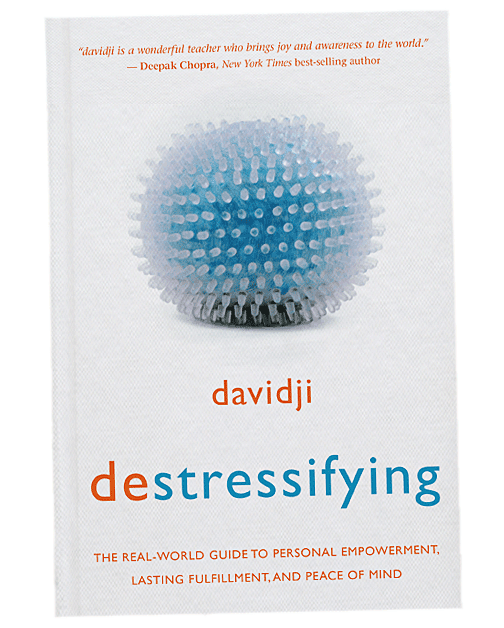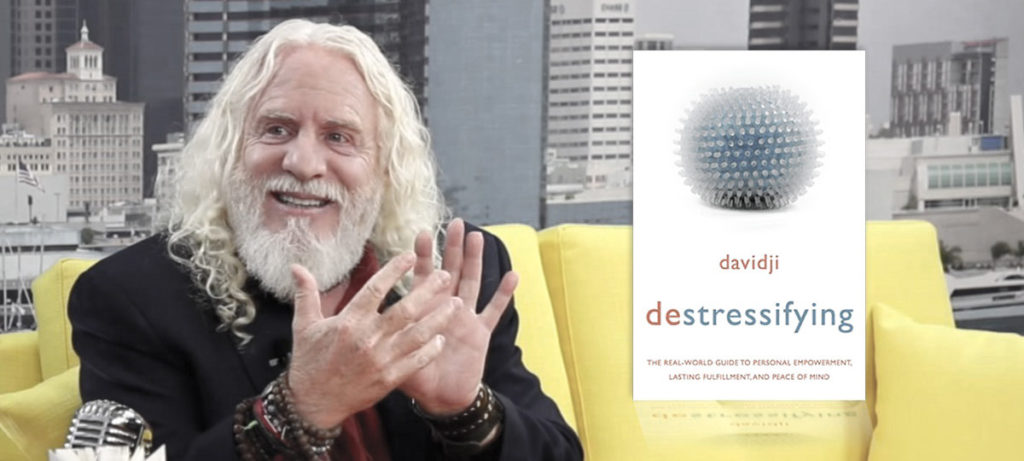Excerpted from “destressifying: The Real-World Guide to Personal Empowerment, Lasting Fulfillment, and Peace of Mind” Chapter 8, pages 172-176.

As you move through each day, you’ll realize that other people’s emotions are projected to you more subtly than your own, and they become more difficult for you to read. (Whether people are extroverted or introverted will determine how prone they are to publicly expressing their emotions or concealing them.) But mastering your own emotions will lay some fertile groundwork for you to detect the nuanced emotional expressions of others.
Remember that when you are calm and relaxed, you have a much better handle on your own emotions than when you’re agitated, anxious, angry, or stressed. Imagine how blind some people are to their own and others’ emotions when they are living in states of chronic stress. Think back to your last stressful moment. Do you remember how oblivious you were to your own emotions at the time? You were probably at an emotionally intelligent low— and were not even thinking about anyone else’s emotions.
Remember, it’s not the event—it’s our interpretation of the event that triggers emotion. For example, the emotion of fear usually occurs in response to a threat, real or imagined. Our understanding and internal labeling of the concept of “being in danger” (based on our interpretations of the past and our interpretation of the moment) is the trigger that arouses our autonomic nervous system.
So if you don’t view a person or experience as “dangerous” or “threatening,” your bodymind will treat it as a non-threat. Having faith that the next moment will be better can quickly shift your mind-set regarding the true danger right now. That’s why your belief that there will be another moment in the future where the pain subsides is critical. You just have to know . . . to realize . . . to truly understand that unless someone is about to kill you, the stress of the moment is probably noncritical.
Owning Your Emotions
In order to destressify, we have to be able to recognize the first spark of emotion before it devolves into emotional overload, which actually disconnects us from our feelings. Without an awareness of what we’re feeling, it’s impossible to fully understand our own behavior, appropriately manage our emotions and actions, and accurately “read” the wants and needs of others. Moment-to-moment awareness of the influence our emotions have on our thoughts and actions is key to destressifying.
Many people are disconnected from their feelings—especially strong core emotions such as anger, sadness, fear, frustration, and resentment. This may be the result of negative childhood experiences that conditioned us to lash out or shut down. But although we can distort, deny, or numb our feelings, we can’t eliminate them. They’re still there, whether we’re aware of them or not . And without emotional awareness, we are unable to release those feelings, manage our stress, fully understand our own motivations and needs, or communicate effectively with others.
Through the power of enhanced emotional awareness, you are able to do all this:
• Recognize and rein in your emotional stress
• Understand and empathize with others
• Communicate clearly and effectively
• Make wiser decisions based on the things that are most important to you
• Get motivated and take action to meet goals
• Build strong, healthy, and rewarding relationships
The Good in the “Bad”
All emotions are good for us . . . if we listen to the message. The benefits of “negative” emotions are that they are telling us something or advising us on our next step. If we don’t absorb their messages, we are wallowing in our negative, painful emotions for no reason and suffering unnecessarily. Fear can put a stranglehold on us, preventing us from moving in any direction. But it also wakes us up to the possibilities around us. If we use it as a tool rather than as a noose, it can enlighten us about where we stand in a given moment. Fear is a symptom, just like sadness is a symptom—a symptom that somewhere you have leaned away from balance.
When you sense fear, pay attention, but don’t stay frozen. Learn from it, and either summon courage to confront it or choose another path. Anger obviously has its downside when it’s unfocused rage.
But it has a deeper, more powerful, positive upside. Anger can be the spark that kicks us in the butt, the inspiration we need to leap out of self-pity or less-than thinking and take action. Sadness also has an upside. I’ve often said that visiting the land of hurts and wounds is healthy and soothing once in a while, but no one benefits long-term by living there. Chronic sadness can devolve into depression. But in-the-moment sadness is a healthy message to pay attention to how we feel. Sadness encourages us to take some time, slow down, and accept our vulnerability rather than creating a hard, false, protective shell. Sadness allows us to grieve, survive, and ultimately thrive after a loss.
Your Emotions in the Real World
Here’s an effective exercise to bring you greater clarity on your personal emotional intelligence:
- Make a list of your top ten “negative” or uncomfortable emotions, including fear, anger, and sadness.
- Write down the benefits that might come to you right now in a real-world situation with each emotion. To ignite your creative thinking here, ask yourself, What is this emotion telling or teaching me about myself or my situation? What did I just learn about myself?
Remember, everyone has these emotions—every sentient being on the planet. Every successful person, every great scientist, every guru and swami, every CEO, every Oscar winner, homeless person, and flight attendant. No one is immune—but perhaps they’ve done some work on themselves. You can, too. This exercise alone will destressify you as you actually learn more about who you are and how you respond to the world around you.
Cultivating your emotional intelligence will help you fulfill your Social Needs of compassion and empathy, your Esteem Needs of self-esteem and self-awareness, and your Self-actualized Need of flexibility—all important contributors to success in your life.
The next step in destressifying is mastering your capacity for conscious communication—the all-important way you share and receive information with others and yourself. Like fulfilling needs and mastering emotional intelligence, communication is a process that seems inherent but is actually a learned skill and requires cultivation to truly master.
Once you understand how to communicate nonviolently, nonverbally, and consciously, then destressifying will take hold. And as long as you continue the practice, your needs will be fulfilled, your relationships will flourish, and your life will unfold more gracefully and effortlessly.




